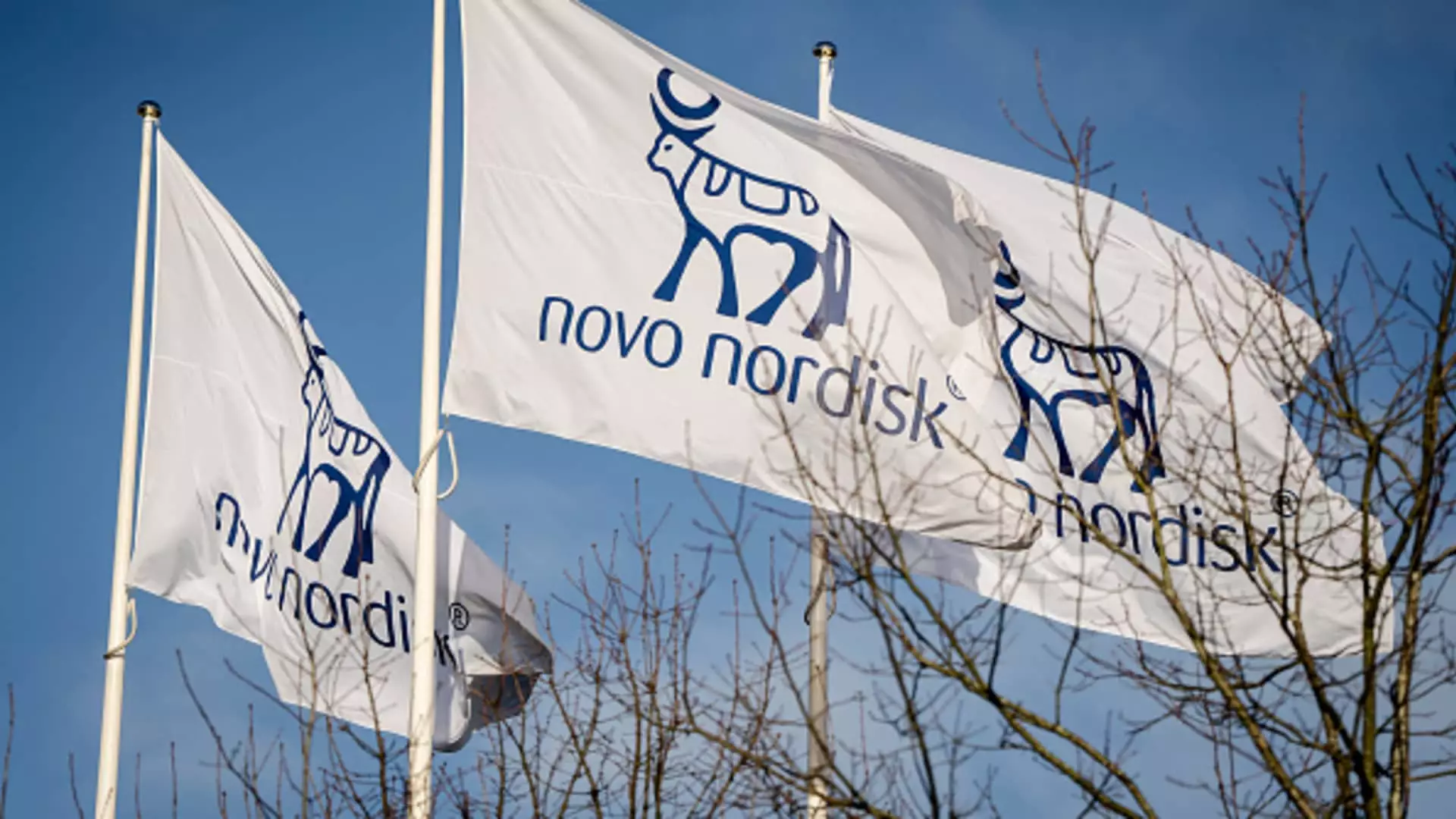In the complex landscape of diabetes management, Novo Nordisk’s recent announcement regarding its oral diabetes medication, Rybelsus, represents a paradigm shift that could significantly enhance patient outcomes. A late-stage trial has demonstrated that Rybelsus can reduce the risk of cardiovascular-related death, heart attack, and stroke by 14% compared to a placebo over an average of four years. This pivotal finding was unveiled during the American College of Cardiology’s Annual Scientific Session held in Chicago, and it stirs both hope and discussion about the potential of non-injection-based treatments in managing chronic illnesses.
What makes this development remarkably noteworthy is not merely the statistic but the broader implications it holds for individuals living with diabetes alongside heart disease. Traditionally, treatment modalities have focused heavily on injectable drugs due to their efficacy; however, not all patients are comfortable with needles. Rybelsus provides a much-needed alternative and opens the door for those reluctant to explore injectable options.
The Trials and Tribulations of Patient Compliance
Patient adherence to treatment regimens is complicated, often becoming a major barrier to effective disease management. This is particularly true in the case of diabetes, where daily practices can feel overwhelming and invasive. Rybelsus offers an attractive feature: it is taken orally once a day, eliminating the needle phobia that inhibits many from accessing necessary therapies. As Stephen Gough, Novo Nordisk’s global chief medical officer, highlighted, “Patients want the option of an oral medication.” This highlights a critical shift in how treatment options are determined: patient preference is becoming increasingly central.
The study, which followed over 9,600 individuals aged fifty and above, reinforces the position that adherence leads to improved health outcomes. With nearly half of the trial participants receiving medications aimed at lowering blood sugar, the findings signal that Rybelsus complements existing treatment regimens effectively. The trial’s design reinforces the idea that a multifaceted approach might be the key to managing multifactorial diseases like diabetes.
Margin for Improvement: Understanding Side Effects
While the cardiovascular benefits of Rybelsus are impressive, one must not overlook the common side effects reported in the trial, primarily gastrointestinal in nature, including nausea and constipation. Although these side effects did not significantly deter patients from continuing their treatment, they still pose a challenge. The discourse surrounding how to manage these symptoms effectively is crucial, as it can impact patient compliance and overall satisfaction with the medication.
It’s essential to consider whether the potential side effects might dissuade patients from starting a treatment they might otherwise benefit from immensely. Such side effects can undermine confidence, especially in a society where the focus on wellness is paramount. This dilemma begs for a deeper look into the broader therapeutic options in the GLP-1 receptor agonist class that addresses both patient comfort and health efficacy.
The Competitive Landscape and Future Considerations
While Novo Nordisk leads with Rybelsus, other pharmaceutical giants, including Eli Lilly, are also venturing into the realm of oral GLP-1s, indicating a fierce competition in the treatment landscape. This is largely driven by recognition of the need for varied treatment modalities to meet diverse patient preferences and needs. As innovative approaches evolve, we can expect more options tailored to individual circumstances, which could ultimately result in improved health outcomes.
The arrival of Wegovy, an injectable previously approved to reduce cardiovascular risks in adults with obesity, further compounds the competitive milieu and presents a grave challenge for traditional treatment regimens. It’s imperative for exploration of these alternatives to focus on not only potential benefits but also patients’ experiences and comfortability.
The findings surrounding Rybelsus pave the way for an enriching conversation about the intersection of diabetes management, cardiovascular health, and the significance of at-home treatments. As healthcare moves forward, an enriched understanding of patient-oriented designs will have profound effects on adherence and overall wellness. It beckons us to rethink how we approach chronic disease management, emphasizing the best interests of patients at the forefront of all discussions.

